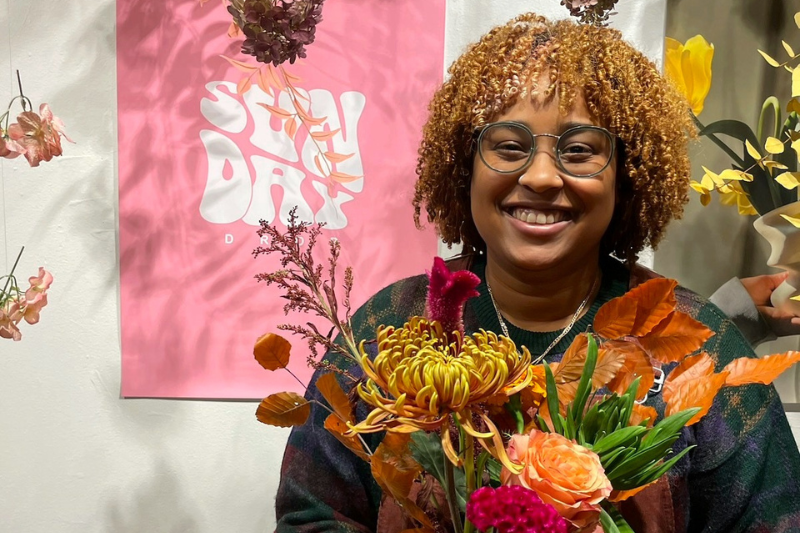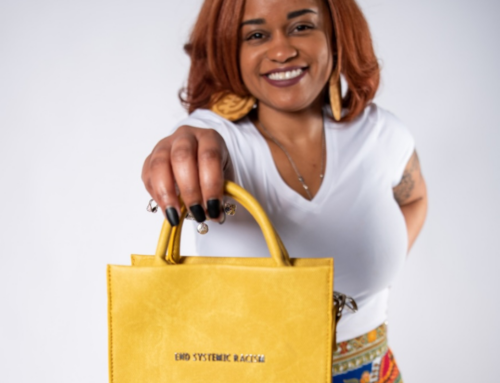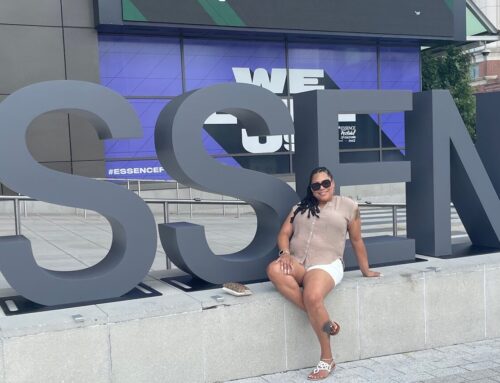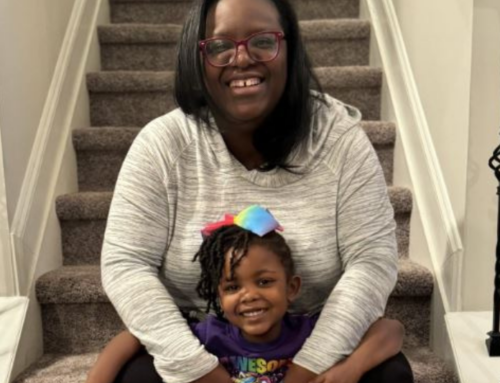Born in Greece, Change Consultant Cachet Evans was a world traveler at a very young age. Raised in an active military family, she moved quite a lot, even attending school in Italy, Puerto Rico, and Virginia all in one year. Though this was a difficult adjustment, Cachet’s life was enriched with the vast experiences of diverse cultures and languages. Through these experiences, and her family’s own melding of different cultures, Cachet learned the power of fully embracing others’ cultural norms. Upon moving back to the United States at 13, Cachet learned quickly that these themes did not translate in a country that so often imposes labels and places people in boxes. From experiencing a lot of freedom and relative safety to coming to terms with the restriction and isolation that often comes with being a Black woman in America, Cachet rejected the idea of conformity. In an environment that thrives off of division, Cachet refuses to bend. Now, Cachet brings that passion for freedom, culture, and paving her own path to Change Matrix (CM).
What drew you to CM?
Prior to Change Matrix, I worked with children as a youth advocate in Colorado. The role allowed me to work with kids that were in foster care, group homes, or were affected by the incarceration of family members. I fostered relationships with these kids to help them build goals and develop a healthy outlook for their futures. Working with youth touched by these systems, and knowing they would not have been in these situations if they weren’t people of color, pushed me to pursue a public health degree, and I was open to seeing where it took me. I knew I wanted to be in a position that was overarching and did not just focus on one cause. I did not want to marry myself to work within just one system. When I found Change Matrix, the variety of projects and the different systems the work touched truly spoke to me. At CM, equity is at the forefront; it’s not an afterthought or a byproduct of the work, it’s the goal. This aligned perfectly with my passions.
What is your role at CM?
I am a Communications Assistant for Expanding the Bench® (ETB) and I work on comms and research for the Achieving Behavioral Health Excellence (ABHE) Initiative. I will also be involved in key informant interviews for the Promoting Resilience and Mental Health Among Health Professional Workforce (PRMHW) project. What I like about my role is that it already seems to be growing and stretching beyond what I was originally hired to do. I get to use my public health background in research as well as gain evaluation skills.
Which project or assignment are you most excited about?
ETB really excites me because the Initiative truly centers racially and ethnically diverse evaluators as well as the often underserved communities they work with. I didn’t know much about evaluation and I’m learning about the field and how passionate ETB’s evaluators are about culturally responsive and equitable evaluation (CREE). Culture being centered is so important, as culture informs how people react to information. ETB’s mission and the community’s collective efforts to advance the mission have been amazing to see. I’ve been enjoying the freedom that comes with managing the social media and marketing, and being able to make it my own. I’m also really looking forward to being involved in the evaluation of the Leaders in Equitable Evaluation and Diversity (LEEAD) Program.
Why did you choose equity work?
I went to Temple University in Philadelphia for Public Health, and the university was situated in a neighborhood that was largely ignored in terms of funding — there was a lot of crime, substance use, and only one grocery store. Seeing the stark difference between the obvious funding the school received versus the lack of infrastructure in the surrounding neighborhood truly opened my eyes to inequities. I was leaving the classroom seeing the systems I was learning about in real time, allowing me to put language to what I was observing. I knew I ultimately wanted to work in equity to improve systems, especially for people of color that are the most affected and oppressed by these systems. I wanted to be in a position where I felt nourished, and equity work feeds my soul.




